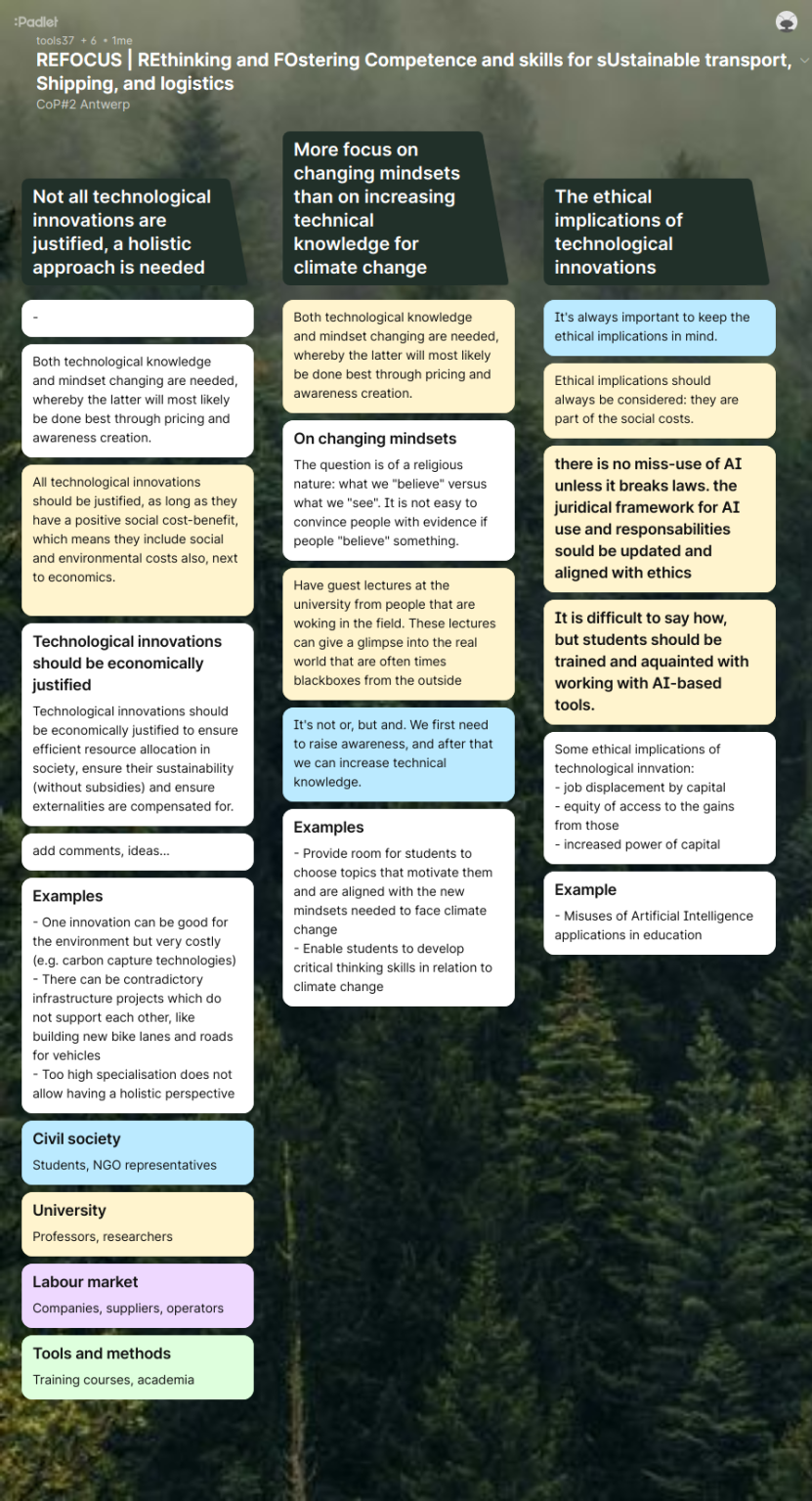Communities of Practice: Belgium

Thematic units of future-oriented curricula
Legal framework
Risks of innovation (positive and negative consequences)
Real life knowledge framework
Holistic approach in impact assessment
- Students expressed their desire for courses that cultivate a sustainability mindset, extending beyond technical knowledge, to positively impact their future careers.
- Urgency for collective action and awareness, to understand the scientific aspects of climate change, devise strategies to combat it, and explore the role of universities and courses in promoting sustainability.
- Future-proof innovations that can adapt to changing circumstances over time. Climate change as a social endeavour requiring the involvement of all stakeholders, including international entities.
- Motivating behavioural changes and creating awareness. This includes implementing pricing mechanisms to incentivize sustainable choices in transportation. Acknowledges the necessity of political will and the need for a careful consideration of social issues related to mobility.
- A holistic approach in tackling climate change, incorporating spatial planning, taxation, and transport policies, with an emphasis on interdisciplinary collaboration.
- A holistic perspective on technological innovations, underlining the significance of economic justification. Promotes sustainability without relying on subsidies, fostering a self-sustaining ecosystem that aligns economic and environmental objectives.
- The integration of various sustainability-related courses into a unified program. Aims to provide students with a comprehensive and interconnected understanding of sustainability across disciplines. This approach emphasizes mindset change, preparing students for real-world challenges and promoting a holistic view of sustainable practices.

Not all technological innovations are justified, a holistic approach is needed
Both technological knowledge and mindset changing are needed, whereby the latter will most likely be done best through pricing and awareness creation.
All technological innovations should be justified, as long as they have a positive social cost-benefit, which means they include social and environmental costs also, next to economics.
More focus on changing mindsets than on increasing technical knowledge for climate change
Both technological knowledge and mindset changing are needed, whereby the latter will most likely be done best through pricing and awareness creation.
On changing mindsets: The question is of a religious nature: what we “believe” versus what we “see”. It is not easy to convince people with evidence if people “believe” something.

Not all technological innovations are justified, a holistic approach is needed
Both technological knowledge and mindset changing are needed, whereby the latter will most likely be done best through pricing and awareness creation.
All technological innovations should be justified, as long as they have a positive social cost-benefit, which means they include social and environmental costs also, next to economics.
More focus on changing mindsets than on increasing technical knowledge for climate change
Both technological knowledge and mindset changing are needed, whereby the latter will most likely be done best through pricing and awareness creation.
On changing mindsets: The question is of a religious nature: what we “believe” versus what we “see”. It is not easy to convince people with evidence if people “believe” something.

Not all technological innovations are justified, a holistic approach is needed
Both technological knowledge and mindset changing are needed, whereby the latter will most likely be done best through pricing and awareness creation.
All technological innovations should be justified, as long as they have a positive social cost-benefit, which means they include social and environmental costs also, next to economics.
More focus on changing mindsets than on increasing technical knowledge for climate change
Both technological knowledge and mindset changing are needed, whereby the latter will most likely be done best through pricing and awareness creation.
On changing mindsets: The question is of a religious nature: what we “believe” versus what we “see”. It is not easy to convince people with evidence if people “believe” something.
